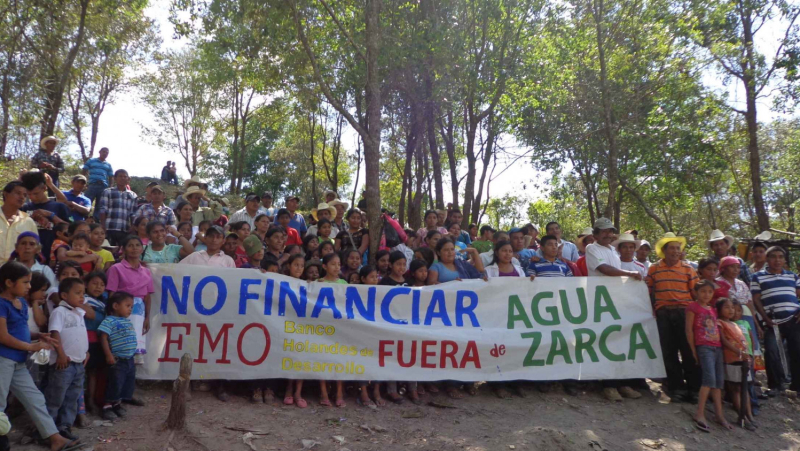New toolkit guides investors on Indigenous rights respect

Today, Amazon Watch published Respecting Indigenous Rights: An Actionable Toolkit for Institutional Investors, an Indigenous-led guide for pension funds, asset managers, and other institutional investors on their responsibility to respect the rights of Indigenous peoples. The toolkit can be accessed here.
This new toolkit fills a gap in current investing practice: it reviews the investor responsibility to respect the rights of Indigenous peoples as recognized by international human rights standards and jurisprudence and offers guidance on incorporating Indigenous rights into management systems and provides practical tools for identifying and addressing Indigenous rights impacts to which investors are connected. The Toolkit was written by Emil Sirén Gualinga, a member of the Kichwa people of Sarayaku (Ecuador) and a sustainable finance specialist, with contributions and input from Indigenous human rights specialists, investors, and NGOs working on the intersection of business and human rights.
“Investors are increasingly recognizing the importance of Indigenous rights due diligence; whether compelled to do so due to regulatory developments, stakeholder demands, the relationship of Indigenous rights to nature protection, or financial risks arising from inadequate due diligence. However, most standards and guidance on social or environmental matters used by investors rarely address Indigenous rights. This toolkit aims to bridge that gap and provide investors with tools to learn about and incorporate Indigenous rights into due diligence and investment stewardship activities, and to foster respect for Indigenous peoples’ rights,” said Emil Sirén Gualinga, a member of the Kichwa people of Sarayaku, sustainable finance specialist, and lead author of the Toolkit.
Many institutional investors are failing to adequately identify and address Indigenous rights in due diligence, despite the fact that the rights of Indigenous peoples are protected by a robust and growing network of international human rights instruments and jurisprudence, and to a growing degree by private sector standards. This implementation gap is demonstrated by the experience of Indigenous peoples, who increasingly experience human rights abuses related to business activities, particularly in relation to the extractive, renewable energy, and agribusiness sectors.
“Indigenous peoples and human rights defenders worldwide are faced with incredible danger to their cultural survival when lands they have used or occupied are threatened by multinational corporations and business entities. The emerging and developing norms and customs within the business and indigenous human rights arena require education and harmonization between international business and human rights obligations found within domestic legal regimes. This toolkit, written with Indigenous leadership, helps investors to map the complexities of international human rights norms as they relate to investments, to help investors evaluate their business relationships and supply chains, to effectively use their due diligence, their power, position, and leverage as a catalyst in preventing harmful conduct in protecting the existence and dignity of Indigenous peoples and the lands they steward; lands upon which all humanity depends,” said Michelle Cook, a member of the Diné Nation and International Director at the Water Protector Legal Collective.
Though implementation is currently lacking, investors big and small have begun to acknowledge the imperative to respect Indigenous rights, both due responsibilities under international standards and agreements, but also because respect for these rights is critical for climate and biodiversity protection.
In mid-March BlackRock, the world’s largest asset manager, noted in its 2023 investment stewardship guidelines, “or companies whose operations impact Indigenous Peoples’ lands and legal rights, a failure to obtain, in advance and on an on-going basis, free, prior and informed consent (FPIC) from those Peoples may expose companies to increased legal, reputational or regulatory risk, in light of various local and international laws and norms governing these relationships.”
“When investors fail to understand and respect Indigenous peoples’ rights, they not only risk reputational damage but also ignore material business risks, which can cost companies and investors billions in cost overruns, delays, and project cancellation. Even BlackRock recently recognized that companies’ failure to obtain and maintain free, prior, and informed consent from impacted Indigenous peoples can lead to financial risk. But recognizing the risk and taking steps to mitigate it are two different steps, and this Toolkit lays out a path,” said Moira Birss, Climate Finance Director at Amazon Watch.
Reposted from Amazon Watch's original press release found here.
